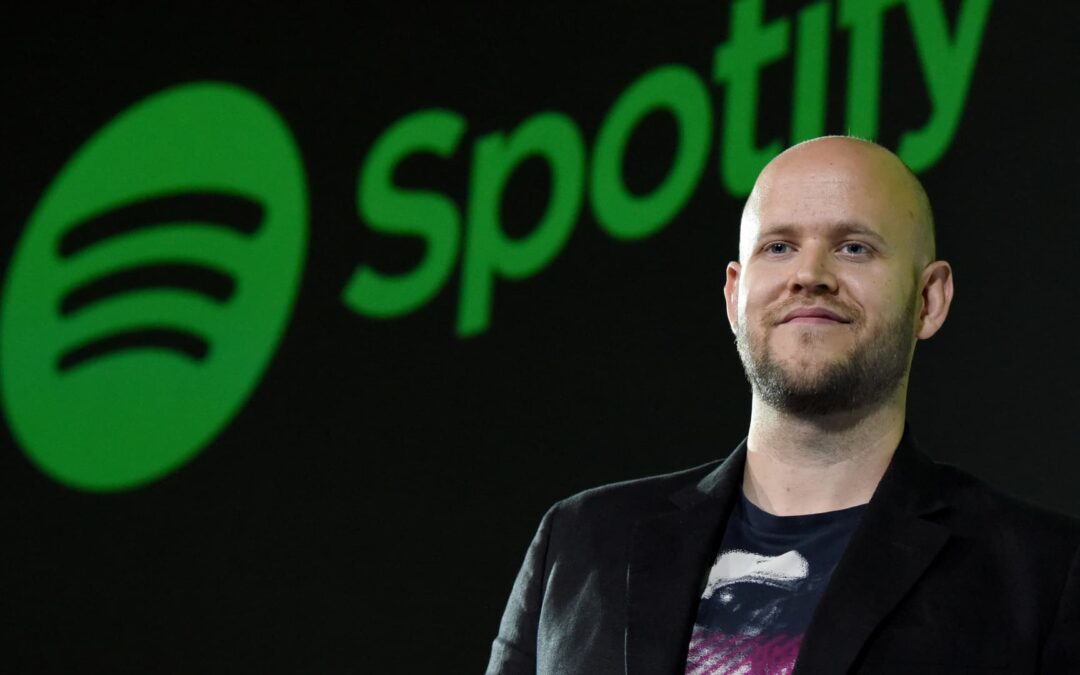Spotify shares closed 10% higher on Tuesday after the company reported a surprise profit for the third quarter — its first quarterly profit in a year and a half — as price increases and cost-cutting measures took hold.
The company’s stock has more than doubled so far this year, giving it a market value of $33.22 billion.
The Swedish music streaming giant posted a profit of 65 million euros ($68.9 million), driven by “lower marketing spend and lower personnel costs and related costs.” Earlier this year, Spotify laid off 200 people, or 2% of its workforce, as part of a strategic change in its podcasting unit.
Here’s how the company performed in the three months ended Sept. 30, compared with what Wall Street expected:
- Earnings per share: 33 euro cents vs. a loss of 22 euro cents expected, according to LSEG, formerly known as Refinitiv
- Revenue: 3.36 billion euros vs. 3.33 billion euros expected, according to LSEG
- Premium subscribers: 226 million vs. 224 million, according to StreetAccount
Spotify raised the prices of its subscription plans earlier this year, increasing the monthly bill for users anywhere from $1 to $2, depending on the plan. In its third-quarter earnings report, Spotify said “the early effects of price increases” were partially responsible for the 11% year-over-year revenue growth.
“We have raised prices in the past and typically we see very little impact on churn,” said CFO Paul Vogel on CNBC’s “Squawk on the Street” Tuesday. “We had a similar forecast for this quarter. We saw basically no real change on the churn side and we saw an acceleration of gross additions” of subscribers.
The company had 574 million monthly active users in the quarter, compared with 572.1 million estimated, according to StreetAccount. Monthly active users drove 447 million euros of ad-supported revenue, the company reported, an increase of 16% year over year.

Spotify stock chart.
Spotify announced earlier this month that it will offer subscribers access to more than 150,000 audio books. The service has already launched in the U.K. and Australia and will debut in the U.S. later this year.
Its Spotify’s latest foray into another audio format outside of music after the company branched out into podcasts in 2015.
“The podcasting business is a much bigger global business because Spotify is a part of that business now,” Vogel said during the company’s earnings call Tuesday. “We think we’re going to have the same benefit on the audiobook side, which will be great for authors and great for consumers.”
LightShed analyst Rich Greenfield said in a post on X, formerly known as Twitter, Tuesday that Spotify is “pulling away from its peers who are simply not innovating in audio.”
Spotify expects profitability to continue into the fourth quarter and 2024.
“This is an inflection point for us,” said Vogel. “We do expect that we are in a position now where we will continue to have quarterly profits.”









